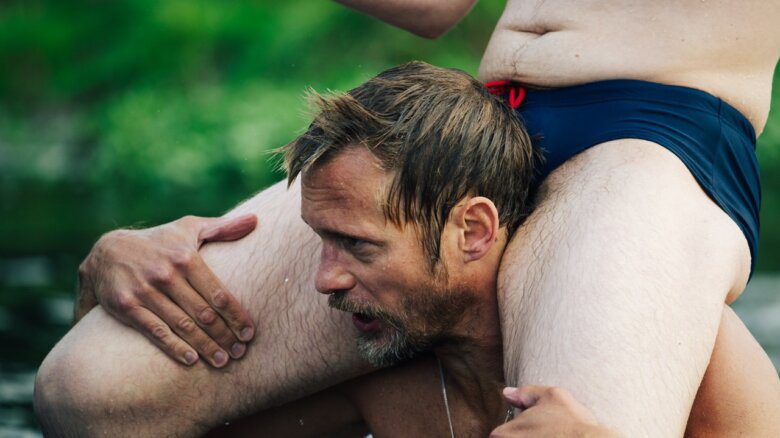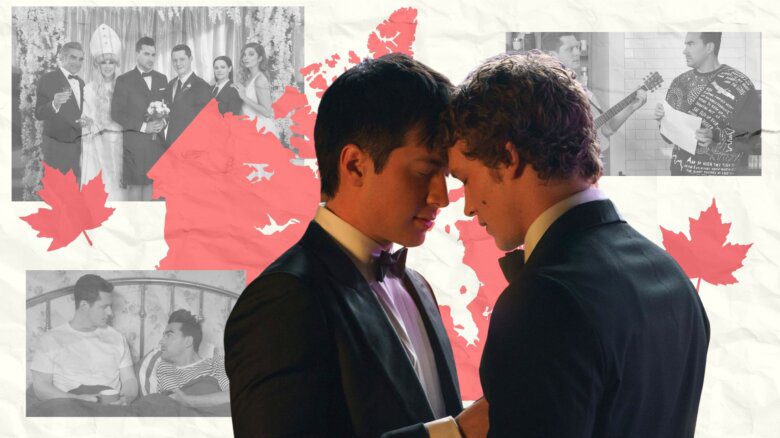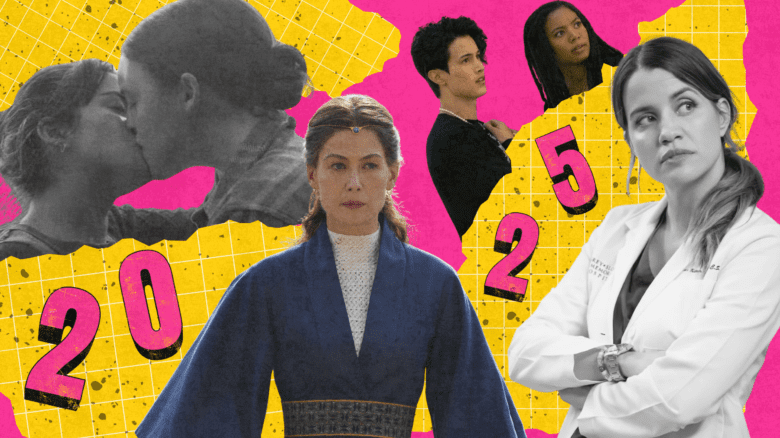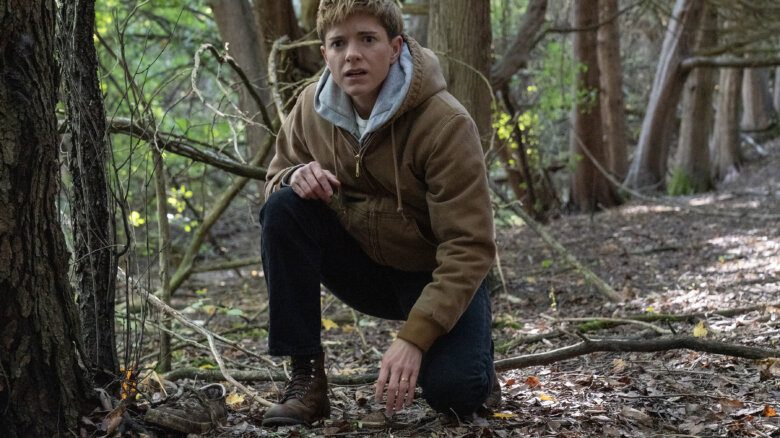Spoiler alert: This article contains spoilers for Season 2 of P-Valley.
I often get asked about the queer characters I related to growing up. It’s a question I abhor, because the truth is there weren’t many—though Marco Del Rossi (Adamo Ruggiero) from Degrassi: The Next Generation and Emily Fields (Shay Mitchell) and Maya St. Germain (Bianca Lawson) from Pretty Little Liars deserve some credit. Not until recently, though, have I been able to give a full-throated answer, thanks to Starz’s P-Valley.
About the intersecting lives of the employees of The Pynk, a strip club known throughout the Mississippi Delta, P-Valley stars Nicco Annan, Brandee Evans and Elarica Johnson. Annan plays Uncle Clifford, the club’s mother hen, while Evans and Johnson are two of her dancers. While there is much to applaud about the series—the cinematography is sumptuous, and its soundtrack is an homage to Southern hip hop—what stands out most to me is the series’ depiction of slices of Black queerness that are often overlooked on television: ones of everyday Black people in the South and how we navigate our communities while trying to exist as our whole selves.
“Uncle Clifford is a bodacious non-binary diva.”
Historically, queer characters in TV and film are side characters with little depth or complexities—unless they are cis and white. Black queer folks are often window dressing in straight and cis narratives as, almost exclusively, a sassy best friend or boisterous hair dresser. Because of this lack of diverse representation in (queer) media, it took me a while to really figure out what queerness could look like for a Black Southerner during my queer awakening. But down in the valley is where I found an authentic representation of the Black queer Southern experience.
Unlike series that wedge everything they can into a single queer character’s arc, P-Valley’s greatness lies in the fact that it’s a story with a plurality of Black queer people—and they each have their own journey, beyond being the narrative’s comedic relief. This allows the show to highlight a plethora of Black queer experiences: Uncle Clifford’s as a bodacious non-binary diva; Lil Murda (played by J. Alphonse Nicholson) and Big Teak (John Clarence Stewart) as masculine, stereotypical down-low men; and Farrah Haynes (Shamika Cotton) as the trophy wife who has repressed her queerness for the sake of her husband. By doing so, the Katori Hall–created series sends a clear message that Black queer Southerners exist, and we’re more than some agenda being pushed.
Ahead of the Season 2 finale, I break down each character’s experience on the show and describe their importance.
Uncle Clifford
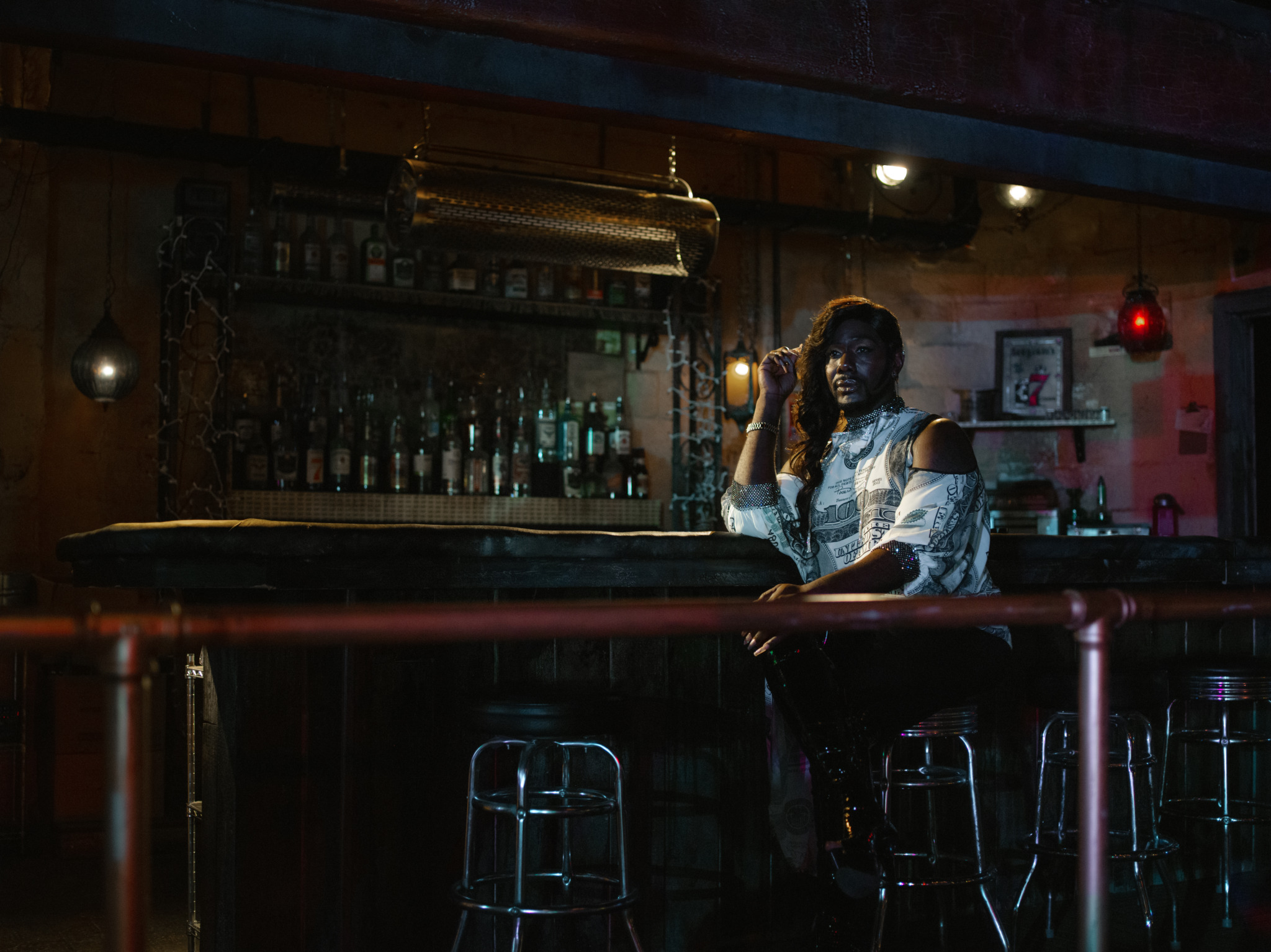
Credit: Courtesy of Starz
Since the first episode of Season 1, Uncle Clifford has embodied the grace and edge only a true Southern diva can. Caretaker and boss, she’s rich in humanity, easily becoming one of the most authentic Black queer Southern characters on TV to date.
Over the course of two seasons, we’ve seen Uncle Clifford juggle her personal life and business, keeping the money flowing at The Pynk while looking after her grandmother. Between these responsibilities, she meets Lil Murda, a rising rapper who is DL but enamoured of Cliff. While Season 1 features a will-they-won’t-they dynamic between them, by Season 2, they’re playing house as Murda comforts (and is comforted by) Uncle Clifford after her club is shut down and her grandmother is in the hospital—both because of COVID-19. Lil Murda, however, is still not comfortable enough to claim Uncle Clifford in public. Beyond this relationship, the series also explores what being non-binary in such a religious region of the country looks like; though we know her mother and grandmother always support her, the rest of the community wasn’t and isn’t so accepting. “Don’t get me wrong, now, I love me some me. But people don’t understand how lonely it can be to shine so bright,” Uncle Clifford says in one episode. Overall, Cliff’s narrative is one that hits home.
Since coming out as non-binary, I’ve wondered what my romantic future holds. Is there a Prince Charming and a white picket fence for me, too? Or just fetishization and being stuffed back into the closet for fleeting moments of intimacy? Dealing with trade (a stereotypically masculine Black man who can pass for straight in most heterosexual spaces) in the South always seems to end in heartbreak, and P-Valley captures this perfectly. For the first time, I felt seen thanks to Uncle Clifford. Seeing her helped me define my non-binary identity by showing me what existing in our world, the South, looks like. Her acknowledging the loneliness that comes with shining bright and standing fully in who you are captures a truth many queer folks can relate to.
Big Teak and Lil Murda
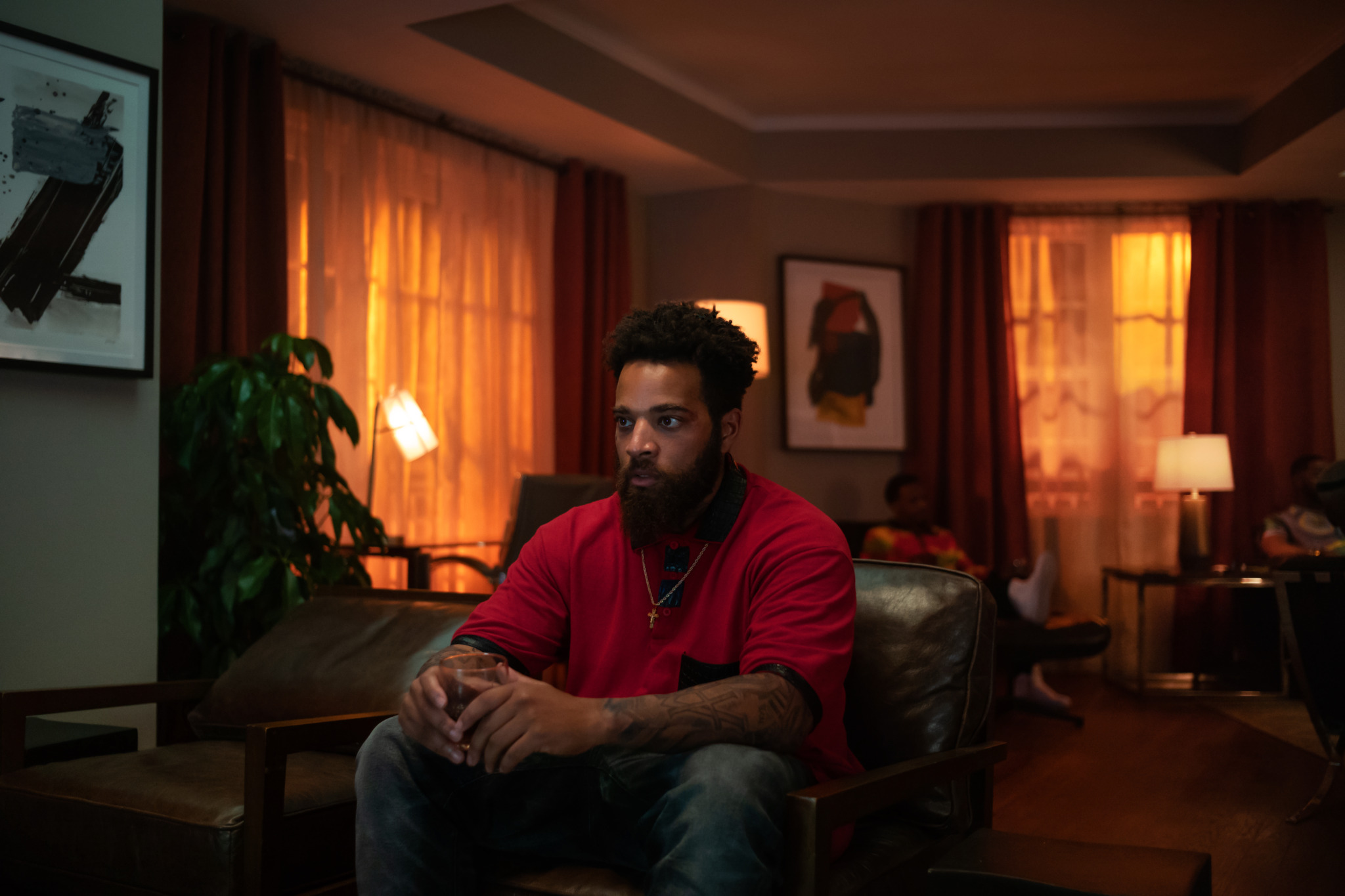
Credit: Courtesy of Starz
Big Teak is someone from Murda’s past who is introduced in Season 2 after having served 10 years in prison for killing a man who attacked Murda, his gangmate. It’s revealed that the two are also former undercover lovers, and in Episode 4, they engage in a beautiful love scene. The scene sparked negative reactions on social media, fueling outcries of a “gay agenda.” But these reactions are from people who pretend infinite types of queer folks don’t exist, and that Black men who are masculine cannot be gay. Co-executive producer and writer of the episode, Patrik-Ian Polk, addressed anti-LGBTQ2S+ comments in a series of tweets: “As a writer and producer of P-Valley, specifically a writer of this episode, I encourage you to step away from Chucalissa. This show is not for you. Go watch something else. Cuz the gay ain’t goin’ nowhere.”
Similar to how most Black gay charactaters on TV and in movies are stereotypically depicted as hypereffeminate, when DL or closeted men are rendered on screen, they’re often villainized. Depicted as liars and cheaters, the focus is usually on how these men exploit their wives and girlfriends and non-women lovers in order to maintain a perceived status that the image of heterosexuality affords them—with good reason, as this is a reality more common than many may be aware! But when you are “what the world won’t let [you] be,” as Lil Murda says in Season 2, you do whatever you can to survive, even if that means repressing who you are. P-Valley, through Murda and Big Teak, restores humanity to this character type, and by association these types of men, by teasing out the complex and nuanced circumstances that keep them from living and loving out loud.
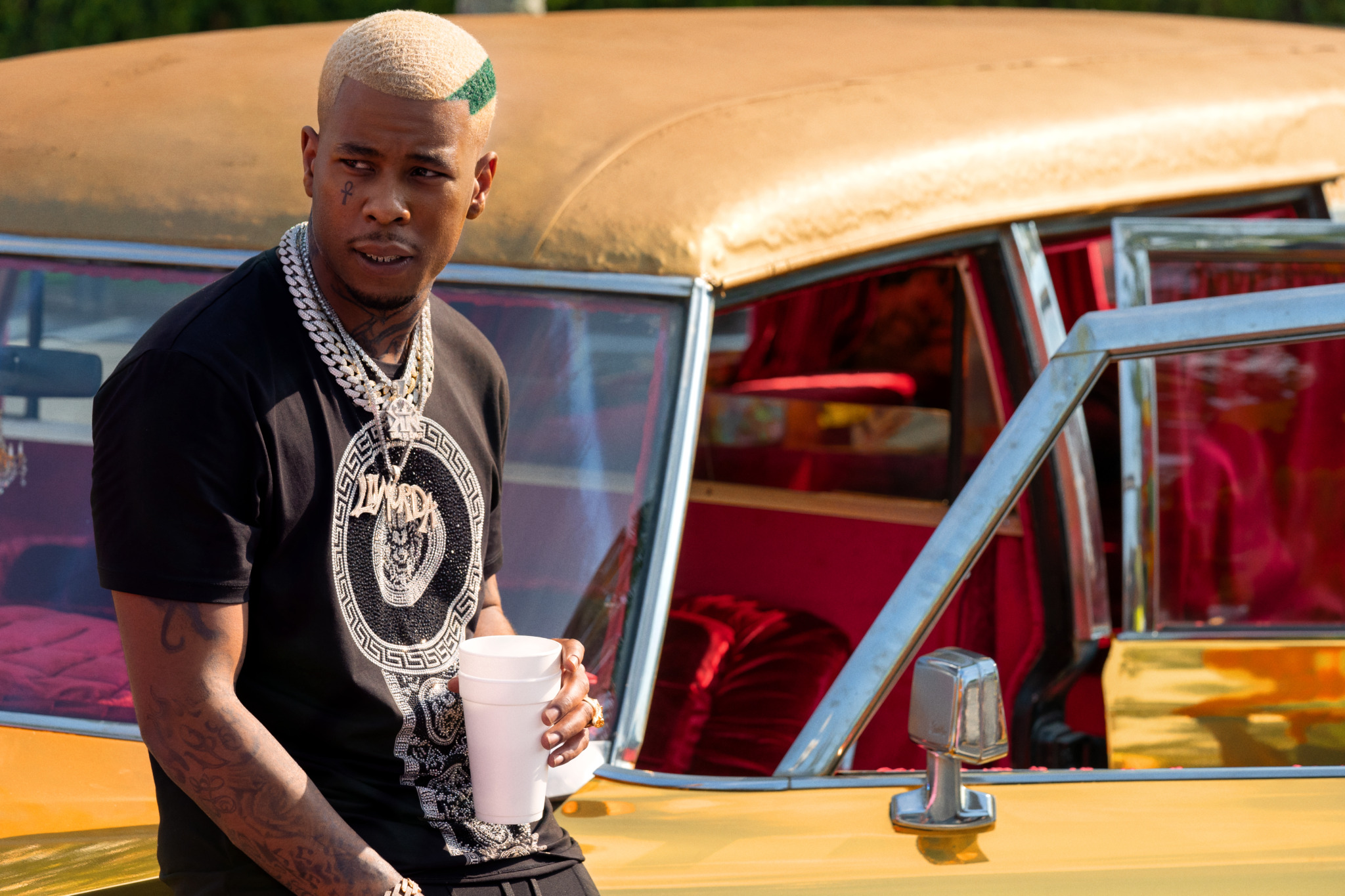
Credit: Courtesy of Starz
And then there’s the sex scene between Murda and Uncle Clifford from Season 2, in which Cliff tops Murda in a switch-up to the masculine top/feminine bottom stereotypes. This occurrence was refreshing and rare, especially considering queer dating culture is steeped in unwritten rules of ”masc for masc” and “no fats, no femmes” rhetoric. Femme tops exist, and P-Valley ensures the world knows that.
Farrah Haynes
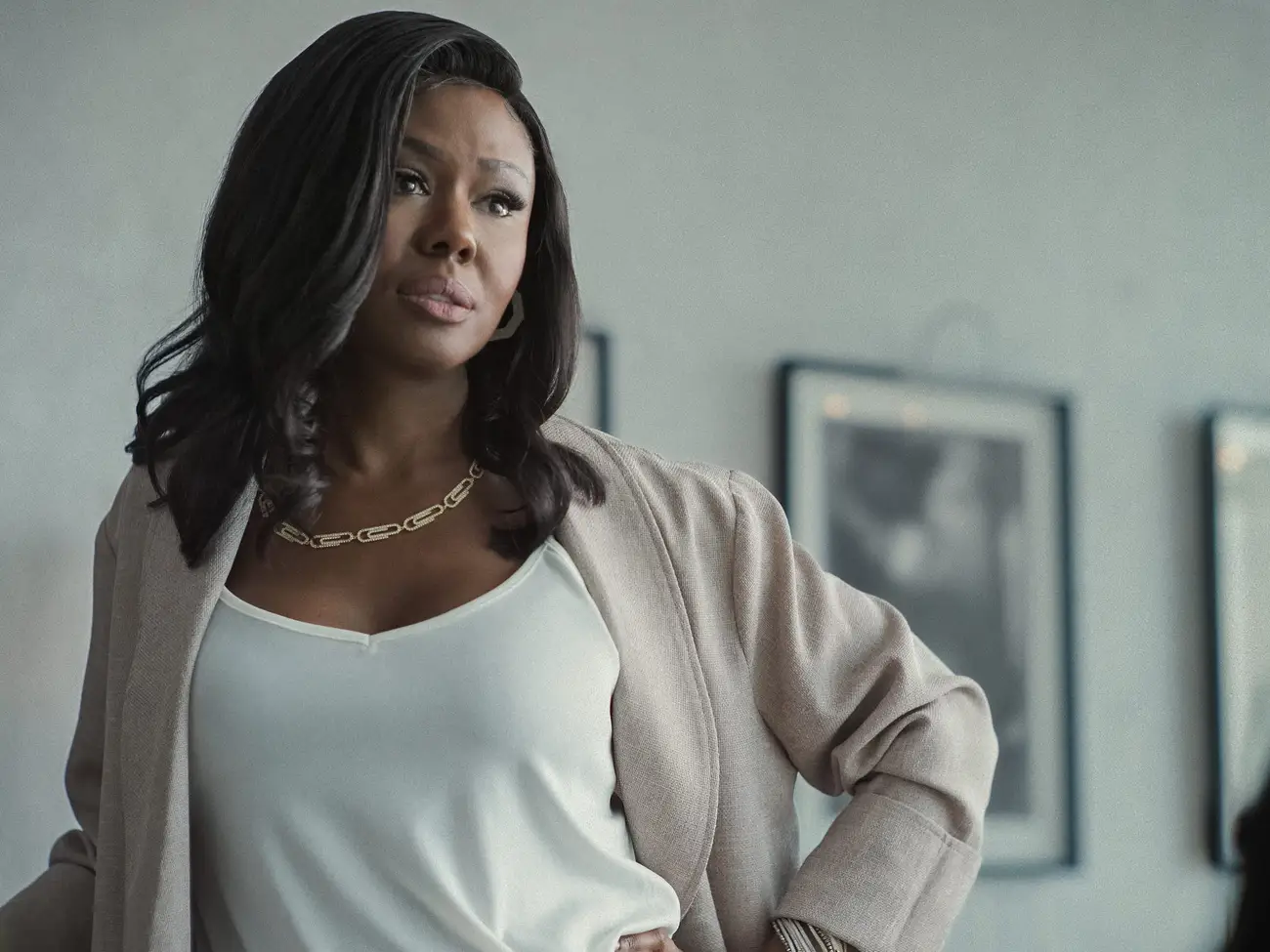
Credit: Courtesy of Starz
Farrah, introduced in Season 2, was once a thriving photographer, but she put her career on the back burner to be a supportive wife to her husband Cedric, aka “Coach,” a regular at The Pynk. She signs off on his affair with Mercedes—a $40,000 sugar baby contract—but is also intrigued by the infamous “Mercedes experience” herself. After a threesome between them, Farrah’s sexual desires are re-awakened. She even arranges a second meet-up with Mercedes, without her husband, in which the pair have sex by themselves. When the trio reunites in Episode 6 for another rendezvous, Cedric realizes his wife is more into Mercedes than she has let on, and he feels betrayed. He claims Mercedes turned Farrah out, but Farrah nips that idea in the bud: “We’ve been married for 19 years, and you don’t even know I like pussy just as much as you.”
Farrah is a lens into how Black queer women experience homophobia and misogynoir. Constantly shrinking herself and being stepped on, she’s an excellent juxtaposition to Uncle Clifford: while the paths each of them have taken are different, they both pay a price. Though Farrah does eventually let her light shine—filing for divorce, getting back into photography and being unapologetic about her desires—she’s a metaphor for many Black queer Southerners’ experience of only feeling able to live their truth later on in life. The character’s arc forecasts the possibilities of evolution and growth in one’s personal comfort level with the multiplicity of their identities.
The beauty of P-Valley’s queer representation lies in its variety, and no matter if these characters’ actions are right or wrong, their humanity is always on display. The love and care for Black Southerners, especially those of us who are queer, that Katori Hall (and co-executive producer Patrik-Ian Polk, the creator of the iconic Noah’s Arc television series) and the show’s entire team have is palpable. It’s refreshing to see our complex narratives prioritized in this way, with the show itself proving that Black queerness isn’t one-size-fits-all.
The Season 2 finale of P-Valley airs Sunday, August 14 on STARZ (streaming on Crave in Canada).
This story was published with support from Critical Minded.
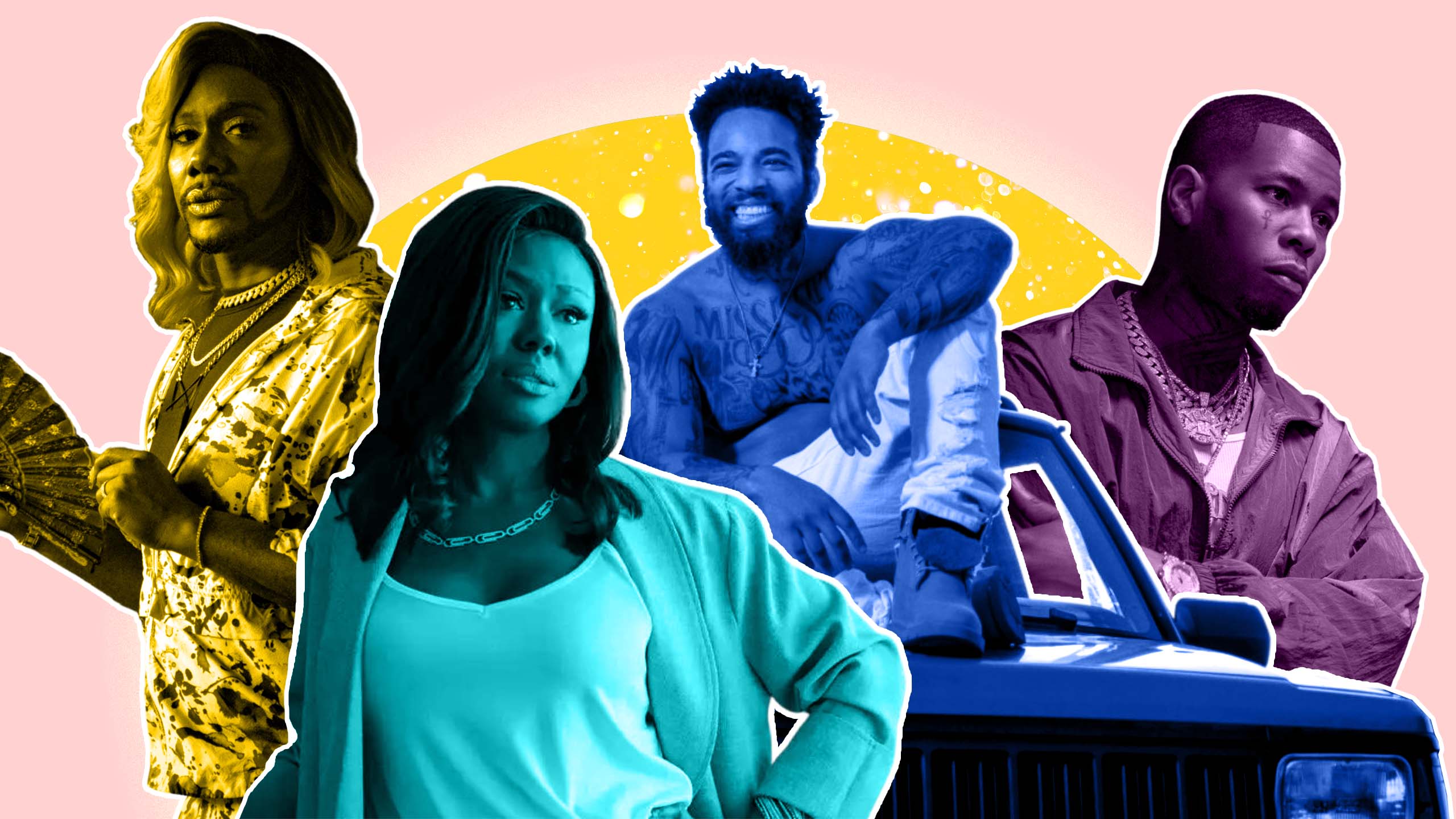

 Why you can trust Xtra
Why you can trust Xtra